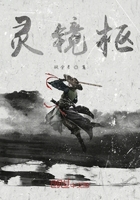Tyler and Hollis and Short and all the rest of us Americans nearly worked our jaws loose on the march back to the village, and for days afterward we kept it up. They told me how they had crossed the barrier cliffs in five days, working twenty-four hours a day in three eight-hour shifts with two reliefs to each shift alternating half-hourly. Two men with electric drills driven from the dynamos aboard the Toreador drilled two holes four feet apart in the face of the cliff and in the same horizontal planes. The holes slanted slightly downward. Into these holes the iron rods brought as a part of our equipment and for just this purpose were inserted, extending about a foot beyond the face of the rock, across these two rods a plank was laid, and then the next shift, mounting to the new level, bored two more holes five feet above the new platform, and so on.
During the nights the searchlights from the Toreador were kept playing upon the cliff at the point where the drills were working, and at the rate of ten feet an hour the summit was reached upon the fifth day. Ropes were lowered, blocks lashed to trees at the top, and crude elevators rigged, so that by the night of the fifth day the entire party, with the exception of the few men needed to man the Toreador, were within Caspak with an abundance of arms, ammunition and equipment.
From then on, they fought their way north in search of me, after a vain and perilous effort to enter the hideous reptile-infested country to the south. Owing to the number of guns among them, they had not lost a man; but their path was strewn with the dead creatures they had been forced to slay to win their way to the north end of the island, where they had found Bowen and his bride among the Galus of Jor.
The reunion between Bowen and Nobs was marked by a frantic display upon Nobs' part, which almost stripped Bowen of the scanty attire that the Galu custom had vouchsafed him. When we arrived at the Galu city, Lys La Rue was waiting to welcome us.
She was Mrs. Tyler now, as the master of the Toreador had married them the very day that the search-party had found them, though neither Lys nor Bowen would admit that any civil or religious ceremony could have rendered more sacred the bonds with which God had united them.
Neither Bowen nor the party from the Toreador had seen any sign of Bradley and his party. They had been so long lost now that any hopes for them must be definitely abandoned. The Galus had heard rumors of them, as had the Western Kro-lu and Band-lu; but none had seen aught of them since they had left Fort Dinosaur months since.
We rested in Jor's village for a fortnight while we prepared for the southward journey to the point where the Toreador was to lie off shore in wait for us. During these two weeks Chal-az came up from the Krolu country, now a full-fledged Galu.
He told us that the remnants of Al-tan's party had been slain when they attempted to re-enter Kro-lu. Chal-az had been made chief, and when he rose, had left the tribe under a new leader whom all respected.
Nobs stuck close to Bowen; but Ace and Ajor and I went out upon many long rides through the beautiful north Galu country.
Chal-az had brought my arms and ammunition up from Kro-lu with him; but my clothes were gone; nor did I miss them once I became accustomed to the free attire of the Galu.
At last came the time for our departure; upon the following morning we were to set out toward the south and the Toreador and dear old California. I had asked Ajor to go with us; but Jor her father had refused to listen to the suggestion. No pleas could swerve him from his decision: Ajor, the cos-ata-lo, from whom might spring a new and greater Caspakian race, could not be spared. I might have any other she among the Galus; but Ajor--no!
The poor child was heartbroken; and as for me, I was slowly realizing the hold that Ajor had upon my heart and wondered how I should get along without her. As I held her in my arms that last night, I tried to imagine what life would be like without her, for at last there had come to me the realization that I loved her--loved my little barbarian; and as I finally tore myself away and went to my own hut to snatch a few hours' sleep before we set off upon our long journey on the morrow, I consoled myself with the thought that time would heal the wound and that back in my native land I should find a mate who would be all and more to me than little Ajor could ever be--a woman of my own race and my own culture.
Morning came more quickly than I could have wished. I rose and breakfasted, but saw nothing of Ajor. It was best, I thought, that I go thus without the harrowing pangs of a last farewell.
The party formed for the march, an escort of Galu warriors ready to accompany us. I could not even bear to go to Ace's corral and bid him farewell. The night before, I had given him to Ajor, and now in my mind the two seemed inseparable.
And so we marched away, down the street flanked with its stone houses and out through the wide gateway in the stone wall which surrounds the city and on across the clearing toward the forest through which we must pass to reach the northern boundary of Galu, beyond which we would turn south. At the edge of the forest I cast a backward glance at the city which held my heart, and beside the massive gateway I saw that which brought me to a sudden halt. It was a little figure leaning against one of the great upright posts upon which the gates swing--a crumpled little figure; and even at this distance I could see its shoulders heave to the sobs that racked it. It was the last straw.
Bowen was near me. "Good-bye old man," I said. "I'm going back."
He looked at me in surprise. "Good-bye, old man," he said, and grasped my hand. "I thought you'd do it in the end."
And then I went back and took Ajor in my arms and kissed the tears from her eyes and a smile to her lips while together we watched the last of the Americans disappear into the forest.













